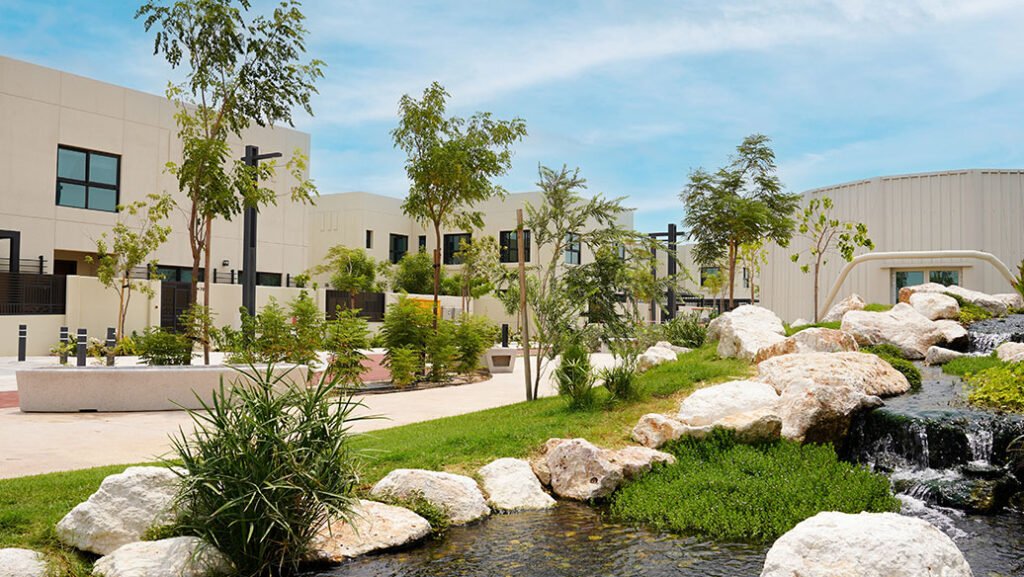Abu Dhabi’s Ghadan 21 Program, launched in 2019, was a massive three-year initiative designed to supercharge the emirate’s economy. With a budget of AED 50 billion ($13.6 billion), the program focused on enhancing the business environment, fostering innovation, and improving quality of life for residents. From supporting small businesses to funding large-scale infrastructure projects, Ghadan 21 has left a lasting impact on Abu Dhabi’s economic landscape.
Boosting Business and Innovation
One of the key pillars of Ghadan 21 was creating a supportive business environment. The program introduced incentives for startups, simplified licensing procedures, and provided financing solutions to encourage entrepreneurship. Small and medium-sized enterprises (SMEs) benefited from grants and reduced fees, fostering a thriving business ecosystem. The Abu Dhabi Investment Office (ADIO) played a significant role in supporting new ventures through financial aid and mentorship programs.
In addition, Ghadan 21 promoted innovation by investing in research and development. The program backed technological advancements in sectors like healthcare, education, and energy, driving Abu Dhabi’s ambition to become a regional hub for innovation and technology. Partnerships with global tech companies and research institutions led to breakthroughs in artificial intelligence, clean energy, and biotechnology. Initiatives such as Hub71, Abu Dhabi’s global tech ecosystem, offered start-ups the resources they needed to grow and scale their operations.

Infrastructure for the Future
Significant investments were made in infrastructure projects that boosted both urban development and connectivity. Abu Dhabi saw the development of advanced road networks, public transportation systems, and energy-efficient buildings. The expansion of the Sheikh Zayed Road and the construction of new bridges enhanced the city’s transportation infrastructure, reducing travel times and improving accessibility.

Additionally, projects like Al Hudayriat Island and the Jubail Mangrove Park were created to promote sustainable tourism and enhance the emirate’s leisure offerings. These developments have transformed Abu Dhabi into a more attractive destination for both residents and tourists. The Abu Dhabi International Airport also saw major upgrades, expanding its capacity and offering world-class services.

The establishment of the Khalifa Port Free Trade Zone and the Industrial City of Abu Dhabi (ICAD) further accelerated economic growth. These zones provided businesses with state-of-the-art facilities, fostering trade and manufacturing. Such projects have solidified Abu Dhabi’s position as a key logistics hub in the region.
Empowering People and Communities
Ghadan 21 was also committed to enhancing the quality of life for residents. Investments in healthcare ensured the expansion of medical facilities, improving access to advanced treatments and specialized care. New hospitals and clinics were established, offering high-quality medical services, while telemedicine platforms were introduced to provide remote consultations.
In the education sector, the program supported schools and universities, providing world-class learning opportunities for students. Scholarships and training programs were introduced to nurture the next generation of professionals. Partnerships with leading educational institutions from around the world brought global expertise to Abu Dhabi’s academic landscape.
Furthermore, the initiative focused on community well-being by enhancing recreational facilities, parks, and cultural attractions. The Abu Dhabi Corniche, with its expanded waterfront promenade, became a popular destination for families and fitness enthusiasts. Events such as the Abu Dhabi Festival and cultural exhibitions enriched the emirate’s cultural scene, promoting local heritage and artistic expression.
The expansion of social welfare programs ensured that all segments of society benefited from the program’s developments. Housing initiatives provided affordable homes for Emiratis, while public transport enhancements ensured greater mobility for residents.
Economic Growth and Sustainability
The economic results of Ghadan 21 have been significant. Abu Dhabi saw increased foreign investments, job creation, and a diversified economy. By supporting key sectors like technology, finance, and renewable energy, the program reduced the emirate’s reliance on oil revenues and paved the way for a sustainable economic future.

Moreover, Ghadan 21’s focus on environmental sustainability was evident in its green initiatives. From renewable energy projects to carbon reduction strategies, the program contributed to the UAE’s broader sustainability goals. Masdar City, a prominent green energy hub, continued to lead clean energy innovation, with advancements in solar power, wind energy, and carbon capture technologies.
The program also facilitated the transition to electric and autonomous vehicles, promoting clean mobility solutions. Investments in waste management and water conservation projects further reduced the environmental impact of urban development.
A Lasting Legacy
Though the official timeline for Ghadan 21 has concluded, its impact continues to shape Abu Dhabi’s progress. The infrastructure, investments, and policy changes initiated by the program laid a strong foundation for future growth. Businesses continue to thrive, residents enjoy improved services, and Abu Dhabi remains a leading global destination for innovation and opportunity.
Ghadan 21 stands as a testament to Abu Dhabi’s commitment to building a prosperous and resilient economy, ensuring a brighter future for generations to come. As the emirate continues to pursue its long-term vision, the principles of Ghadan 21 will undoubtedly guide its journey towards sustainable growth and global leadership.
Also read: Why Everyone’s Talking About Sharjah’s Sustainable City Project












